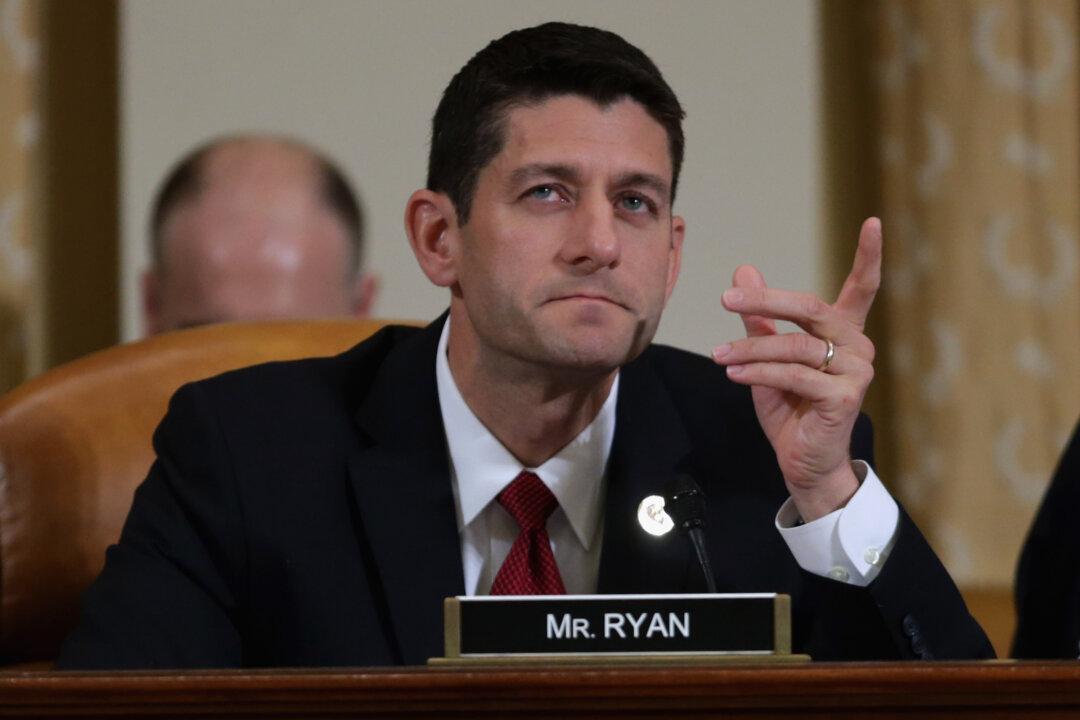Republicans and the White House will likely cooperate on corporate tax-reform in the coming months, but the tax increases President Barack Obama proposed in his State of the Union Address are unlikely to materialize.
Ways and Means Committee Chair Paul Ryan (R-Wis.) reiterated again on Sunday that he was adamantly opposed to the president’s proposal to raise taxes, especially the estate tax.
“The president has done two big rounds of tax-increases, it’s one of the reasons we have this stagnant economy, he’s practicing yet again envy-economics, and it doesn’t work,” Ryan said on NBC’s Meet the Press.
Ryan said that the economy was in poor shape even though growth is up and the unemployment rate is much lower than two years ago.
“We’re under 3 percent [annual growth], we have tens of millions of people who are not working or looking for work, they’re not even counted in that unemployment statistic,” he said.





